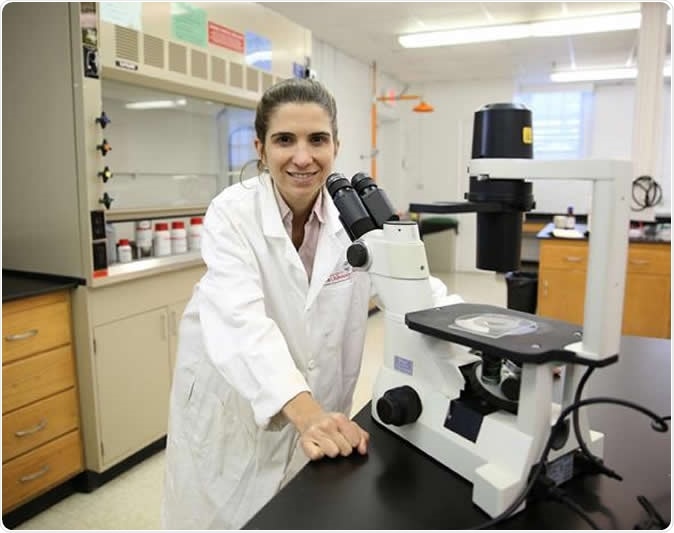Weight loss mandates healthy eating and control of impulses when it comes to eating fat rich and processed foods. The actual story is quite different, as most persons on a diet have found out the hard way. The smell of food and even thoughts have given rise to binge eating, indulging in excessive food intake that has led to obesity and weight gain.
Impulsive eating has been likened to several psychiatric disorders such as drug addiction and addictions to gambling etc. A team of researchers wrote, “Impulsivity, or responding without apparent forethought for the consequences of one’s actions, is associated with several psychiatric disorders, including drug addiction, excessive gambling, affective disorders, attention-deficit hyperactivity disorder, and Parkinson’s disease”
Researchers from the University of Georgia have uncovered a specific neural circuit within the brain that can affect impulsive eating. If targeted and controlled, this could lead to a stop in impulse eating and also help lose weight say researchers. The study titled, “Hypothalamus-hippocampus circuitry regulates impulsivity via melanin-concentrating hormone,” was published recently in the journal Nature Communications.
Lead author of the study Emily Noble, an assistant professor in the UGA College of Family and Consumer Sciences explained, “There's underlying physiology in your brain that is regulating your capacity to say no to (impulsive eating). In experimental models, you can activate that circuitry and get a specific behavioral response.”

Emily Noble was the lead author on the research paper. (Photo by Cal Powell)
They wrote in explanation, “Behavioral impulsivity can be divided into two distinct categories: impulsive action and impulsive choice. Impulsive action refers to a failure to inhibit an inappropriate response to a stimulus, whereas impulsive choice is characterized by impulsive decision-making caused by a distorted and/or poor consideration of future behavioral consequences, often evaluated experimentally as the preference of a small immediate reward over a larger delayed one.” They added that the ventral hippocampus (vHP) has been found to be linked to “control of impulsive and motivated responding for palatable food.” They wrote, “This brain region, more classically involved in learning and memory, responds to a multitude of interoceptive signals (endocrine, neuropeptidergic) to regulate learned and inhibitory aspects of food intake and other motivated behaviours.”
For this study Noble and her team used the lab rats as models and worked on their brain cells. They noted that the brains of these rats produce a type of neurotransmitter in their hypothalamus region of their brains. This is known as the melanin concentrating hormone (MCH). Raising MCH levels in the brain raises food intake explained Noble and she added that this has been proven in previous studies. This study found that raising MCH levels could also increase the frequency of impulsive eating. She said, “We found that when we activate the cells in the brain that produce MCH, animals become more impulsive in their behavior around food.”
For this study the team included laboratory rats who were trained to press a foot lever which when pressed released a pellet that was high in fat and sugar and was “delicious”. The catch was that the rats had to press the lever and wait for 20 seconds to obtain their pellet. If they pressed the lever again or too soon, they would have to wait an extra 20 seconds to receive their pellets. The brains of the rats, especially their neurons between hypothalamus to the hippocampus were studied while they were undergoing the experiments. This region was activated by MCH and was also associated with learning and memory in the animals.
They added, “Based on the established role of the central MCH system in promoting food intake and body weight gain in rodents, this system is currently a target for obesity pharmacotherapy development. Obesity has been associated with both impulsive action and impulsive choice, and related, impulsivity is also correlated with excessive food intake and weight gain.”
The team noted that MCH was not the reason why the animals craved for the pellets or if they could wait for the pellets. The actual job of the neuronal circuit was to inhibit the impulses in the rats that made them press the levers repeatedly. Noble explained, “Activating this specific pathway of MCH neurons increased impulsive behavior without affecting normal eating for caloric need or motivation to consume delicious food.” The team wrote in conclusion, “Collectively, these data reveal a specific neural circuit that regulates impulsivity and provide evidence of a novel function for MCH on behavior.”
She added, “Understanding that this circuit, which selectively affects food impulsivity, exists opens the door to the possibility that one day we might be able to develop therapeutics for overeating that help people stick to a diet without reducing normal appetite or making delicious foods less delicious.”
Journal reference:
Noble, E.E., Wang, Z., Liu, C.M. et al. Hypothalamus-hippocampus circuitry regulates impulsivity via melanin-concentrating hormone. Nat Commun 10, 4923 (2019) doi:10.1038/s41467-019-12895-y, https://www.nature.com/articles/s41467-019-12895-y